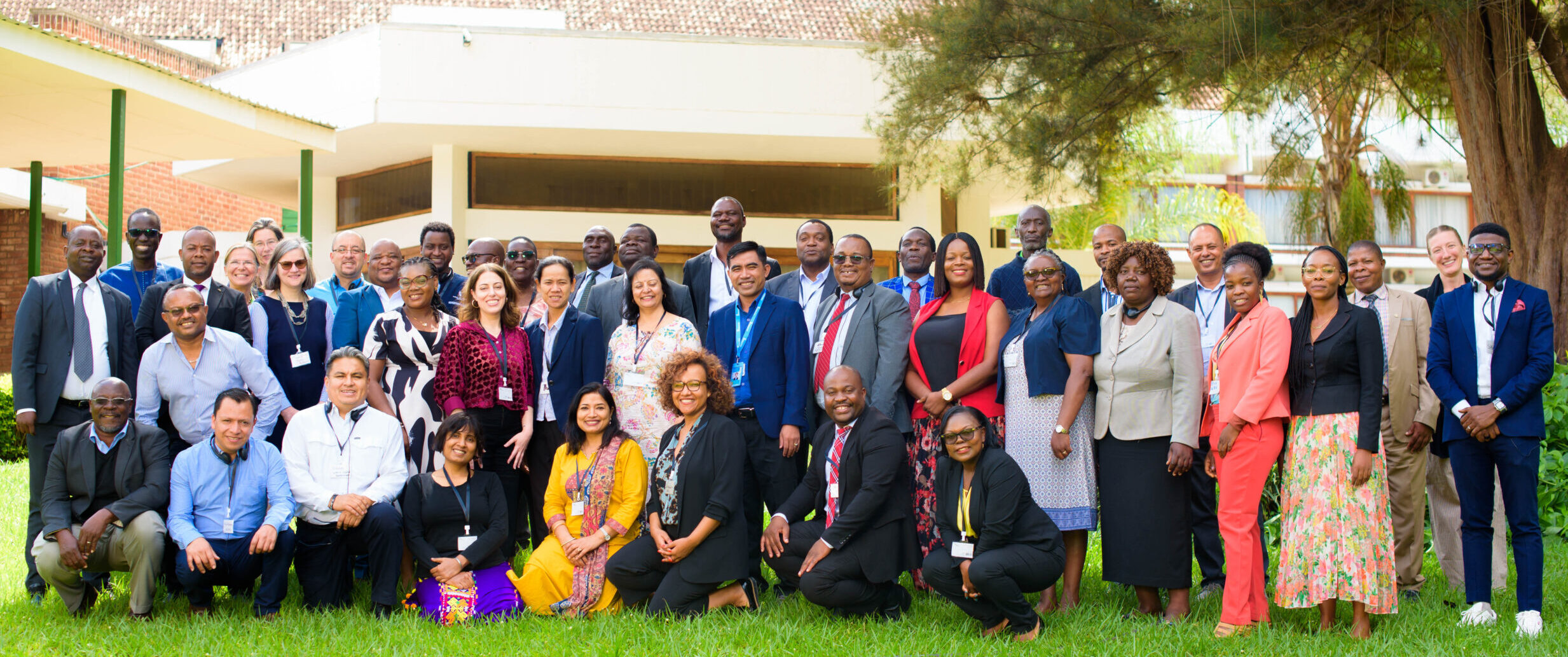
Members of Agenda for Change representing 15+ countries, Malawian colleagues, local allies and partners, and Directors from the Malawi Ministry of Water and Sanitation gathered on May 13th, 2025 to kick off the Strategy Lab in Lilongwe.
The Agenda for Change Strategy Lab in Lilongwe, Malawi tackled a fundamental question: How must we evolve as a consortium towards becoming locally led and resilient enough to drive systems change?
From May 13-16, over 40 colleagues from 15+ countries didn’t just meet, we transformed how we think about our role in an increasingly complex world.
Malawi’s Blueprint for Government Leadership
Our hosts set the tone perfectly with a powerful video showcasing their journey. Rural access to improved water sources has risen from 60% to nearly 88%, but only 58% of these water points are fully functional. Yet what made this compelling wasn’t the challenge – it was how the Government of Malawi stepped up as systems leaders.
As Ewurabena Yanyi-Akofur from Ghana reflected: “We were all genuinely moved by their clarity, their ambition, their accountability to drive WASH through legal frameworks, national leadership and a dedicated Ministry for water and sanitation.” Among other achievements, Ministry officials shared how Malawi’s National WASH Building Blocks analysis directly informed their Climate Resilience WASH Finance Strategy and Presidential Compact with 12 commitments.
Without political will, systems reform stalls. With it, even the most entrenched challenges begin to shift. Malawi reminded us that transformation is possible, but only when governments lead the change agenda.
Interweaving Collaboration with Localization
Three Strategic Shifts
- Towards inclusion and equity: We acknowledged A4C began as a “members-only” group but recognized we must expand to include local organizations, local government, academic institutions, and social enterprises from the start, not as an afterthought.
- Redefining localization: Through critical conversations with allies like ANEW, BASEflow, CONIWAS, and WASH-SDO, we moved beyond seeing localization as fund transfers. Instead, we’re strengthening government and local actors’ capacity to lead autonomously while avoiding creating new dependencies. Radical trust emerged as a core enabling behavior, not just trust in individuals, but in the leadership and legitimacy of local institutions to drive and sustain change.
- Accountability matters: We developed practical tools: country collaboration charters (pioneered by Nigeria), 100-day sprint commitments, and monitoring frameworks that capture system changes, not just activities.
Each collaboration left with concrete commitments that reflect this localization imperative, for instance:
- India and Nepal are expanding partnerships to include local actors.
- Uganda is re-engaging government focal persons.
- Ethiopia is embedding system strengthening into government-led coordination structures.
- Guatemala is facilitating strategic sector dialogue including ministries and civil society.
And much more. Plus, these aren’t distant goals – they’re happening in the next 3 months, with many collaborations already having begun the process.
The Paradigm Shift
As our colleague from Guatemala noted, the real challenge is “accompanying without imposing, collaborating while strengthening local institutional knowledge,” recognizing this as the paradigm shift we must embrace.
We’re repositioning ourselves to support strong, inclusive WASH systems that countries can sustain and lead themselves. Because true success means making ourselves unnecessary as external actors while ensuring our inputs outlive us via strong and resilient WASH systems.
The future of development lies not in better aid, but in stronger systems – systems that are owned, led, and sustained by national actors. Collaboration and systems thinking, not external direction, will define what endures. National and local collaborators are driving this transformation now, with Agenda for Change supporting them along the path, truly walking the talk of locally-led development.
—
Want to see this transformation in action? Watch our 5-minute recap video to experience the energy and insights from Malawi, then join us at World Water Week in Stockholm where we’ll continue these conversations.
